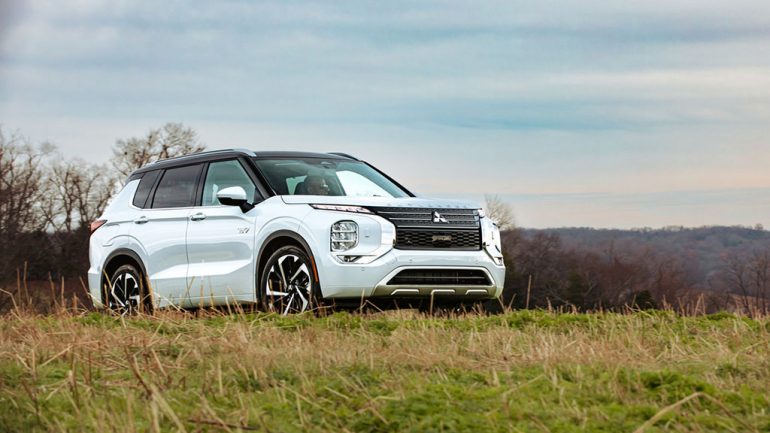Automotive

The auto industry’s storm clouds are thickening, and now Mitsubishi is the latest to pull over and assess the damage. The Japanese automaker has officially paused all vehicle shipments to U.S. dealerships in response to the Trump administration’s reinstated 25-percent tariff on imported automobiles. And while Mitsubishi’s current inventory may buy it some time, the long-term implications could hit both dealers and consumers hard.
According to a company spokesperson speaking to Automotive News, Mitsubishi is “holding vehicles at the port until we have additional visibility on tariffs and decisions made on next steps.” That decision aligns with a growing chorus of foreign automakers—including Volkswagen, Audi, Lotus, Jaguar Land Rover, and Volvo—who’ve also frozen shipments amid escalating trade tensions.
Inventory Safety Net… for Now
Mitsubishi dealerships across the U.S. are sitting on a cushion—for the moment. There are roughly 20,245 vehicles in stock nationwide, a supply that’s expected to last around 100 days. That inventory includes core models like the Outlander and Outlander Sport, which account for the bulk of Mitsubishi’s modest U.S. sales. The temporary halt won’t immediately translate to empty lots, but once the current stock is depleted, customers can expect to see sticker shock.
In preparation, Mitsubishi has already begun tightening the screws. Incentives for the Outlander have dropped, with customer cash now reduced from $1,500 to $1,000. Even financing terms have taken a hit, rising from a competitive 2.99 percent to a less appealing 4.99 percent APR for qualified buyers.
This isn’t just a pricing shift—it’s a signal. The automaker is bracing for higher costs down the line, and consumers looking to capitalize on current deals may want to act sooner rather than later.
A Tough Spot for a Struggling Brand
Unlike competitors who have diversified manufacturing bases or U.S. assembly plants, Mitsubishi builds every vehicle it sells here in Japan. That puts the brand in a uniquely vulnerable position, fully exposed to the new import tariffs without a workaround in sight.
The impact is already being felt at the dealership level. With sales slipping—Mitsubishi moved just 109,843 vehicles in 2024—some dealers are reportedly shifting focus away from the brand entirely, instead leaning on used vehicles to keep business afloat.
It’s a grim outlook for a company that’s long operated on the fringes of the U.S. market. While Mitsubishi has seen pockets of success in the SUV segment, it lacks the sales volume and production flexibility of larger rivals. For a brand fighting to remain relevant, this latest disruption could be a breaking point.
Market Uncertainty and Price Hikes Loom
Mitsubishi’s move underscores a broader crisis brewing in the industry. Automakers are caught in a holding pattern, waiting to see whether tariffs will be rolled back or become a longer-term reality. Volvo, for instance, recently pulled the plug on the S90 sedan for the U.S. altogether, choosing to cut losses rather than absorb the financial strain.
For consumers, the writing’s on the wall. If the tariffs persist, prices across multiple brands—particularly for models not built in North America—are likely to climb. At the same time, selection could narrow as automakers reevaluate which models make financial sense to sell here.
If you’re in the market for a new Mitsubishi or any imported vehicle, the clock is ticking. That 100-day supply may sound like a cushion, but when it runs dry, the new normal could include fewer choices, higher prices, and stiffer financing terms.
Mitsubishi’s shipment freeze isn’t just a short-term strategy—it’s a warning shot. With a fragile supply chain, rising costs, and wavering dealer support, the brand’s U.S. future is hanging in the balance. As trade tensions continue to reshape the automotive landscape, buyers and sellers alike are being forced to adapt—fast.
FOLLOW US TODAY:

